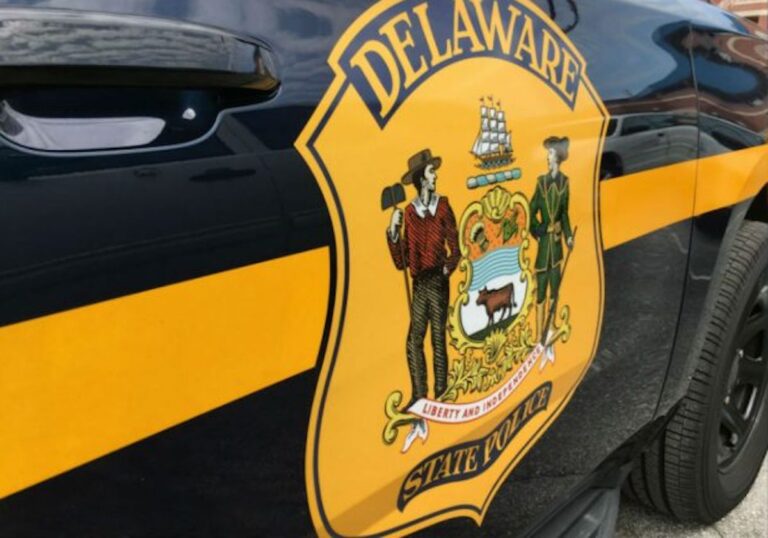All Delaware police officers now required to wear body cameras
Gov. John Carney has signed off on a statewide police camera program that Delaware lawmakers unanimously approved last month.

FILE - A Delaware State Police vehicle is seen in a file photo. (Mark Eichmann/WHYY News)
Requiring all police officers in the state to wear body cameras was part of the Delaware Black Caucus’ Justice for All agenda, unveiled last year following protests over the Minnesota police killing of George Floyd.
On Wednesday morning, members of the caucus joined other lawmakers at State Police Troop 2 in Glasgow as Gov. John Carney signed the legislation making the statewide program official.
“While we were trying to address a global pandemic and all of the racial unrest in our country, we were able to galvanize together, work together to present something to the citizens of Delaware to address the uncertainty that so many of them felt,” said State Sen. Darius Brown.
Carney said while some departments in the state have already been using body cameras, it was important to make it a statewide effort.
“It’s more about the trust that something like this is creating between law enforcement and the communities in which they serve — particularly communities of color — that is so critically important for law enforcement to do their jobs and for our communities to be safe,” Carney said.
Lawmakers voted unanimously last month to approve the body camera legislation. State Rep. Sherry Dorsey Walker sponsored the bill, which she says will help protect citizens and police.
“Body-worn cameras create transparency and accountability, not just for the officers but for the community as well. I don’t want officers having stories being told about them that aren’t true,” she said.
Evidence on the effectiveness of body-worn cameras is mixed, with some studies showing they have limited effect on police use of force.
State lawmakers included more than $5 million in one-time funding in a supplemental spending bill last month to help fund the first year of the program.
Over the next six months, a committee will work to develop protocols and guidelines for how the video captured by these cameras will be used.
“We are not done,” said Delaware Attorney General Kathleen Jennings. “We need to equip our police with both the technology and an updated policy, I think by January 2022.”
Historically, police and prosecutors have not been very forthcoming about sharing footage from officers who’ve been wearing cameras in the state.
New Castle County Executive Matt Meyer took a rare step earlier this year when he released the footage captured by officers’ body cameras in the fatal shooting of Lymond Moses, a Black man killed by officers in January. The footage shows two white officers asking Moses to get out of his car, claiming they saw marijuana. Moses drove off and, after making a U-turn at a dead-end, the footage shows multiple officers shooting at the moving car, even after it appeared to swerve around them.
The police union objected to Meyer’s move, saying it “taints the investigative process.” Others, including the ACLU of Delaware, applauded Meyer’s decision as an important way to rebuild trust.

Get daily updates from WHYY News!
WHYY is your source for fact-based, in-depth journalism and information. As a nonprofit organization, we rely on financial support from readers like you. Please give today.







